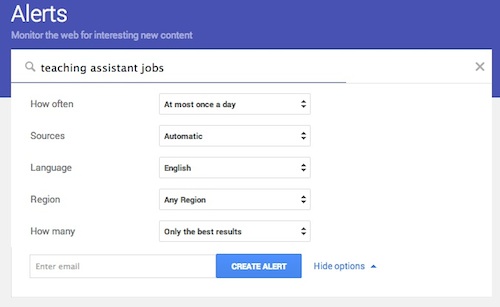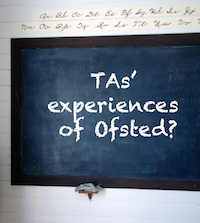A few days ago, I was responsible for dragging a dark cloud of depression over the head of one of the nicest, most affable, trusting ‘gentle-men’ I know; a retired Head teacher, whom I sometimes meet up with at conferences.
As we sat there waiting for the conference to begin, we got talking about economics, and the importance to the current generation of ‘the bank of mum and dad’, and he was rather surprised when I made the claim that it was a pity that this wouldn’t be open to any future generations for the vast majority of people. He asked me why not, and I explained my thesis to him, by the end of which, as he was saying uncharacteristically “My God, how depressing”, I did make the offer that, as we were a couple of stories up, maybe we should open the window and both jump together.
My idea to him went something like this; ‘the bank of mum and dad’ is only viable when ‘mum and dad’ have the opportunity to get some collateral behind them, which they can pass on to their kids; ‘mum and dad’ have, in the past, traditionally built up collateral by buying a house that they could afford, normally on marriage, and seeing that house steadily rise in value over the years; as the mortgage was not too high, they found that as the years passed, they had more disposable income that they could put away. They may have been to college or university, or may not, but they did not start off their working life saddled with a hideous amount of debt hanging over their heads. ‘Mum and dad’ were masters of their own destiny, deciding what to do for their own kids’ wellbeing when the kids came along, whether to work full-part-or home-time, because the mortgage was still ticking along at a reasonable level, on a property that was not taking up the vast majority of their income. They were in a position to, in the main, help their kids out should the need arise, but ‘mum and dad’ didn’t expect that they would have to, because their kids, in their turn, would get their own affordable place to live, and ‘mum and dad’ could look forward to a comfortable retirement, safe in the knowledge that their kids were okay.
But, as we all know, those days are gone; ‘mum and dad’ not only help their kids through college and university, they also see their kids come out at the end with a colossal debt before they even do a day’s work. Property prices have ballooned to the point where few of their kids can afford a deposit; if they earn enough to start saving for the deposit, they earn enough to start paying back their student loan, and who can do both? ‘The bank of mum and dad’ might step in, thereby robbing ‘mum and dad’ of their planned comfortable retirement, which may, incidentally, push them to release equity in their house, thereby robbing their children of any residual nest-egg which may have been coming their way when ‘the bank of mum and dad’ finally closes.
So now their kids owe ‘the bank of mum and dad’, the government body that oversees their student loans, and the excruciating payments they have to make just to keep a roof over their heads. If they decide to have kids, they have no choice about returning to work; they have to, to service all of their debts…plus they then have to pay for childcare. What chance do they have to save, in order to become ‘the bank of mum and dad’ for their own kids?
Okay, I know some of you are screaming that the scenario I have painted is straight out of a 1970s middle-class sit-com, with Richard Briars playing the erstwhile dad, and Felicity Kendal the slightly perky but understanding mum, and that many of you did not have ‘a bank of mum and dad’ to call upon, but can I take you back to 1983, when a much younger and slimmer newly-married me bought my first house? Both of us were ‘council house kids’; we knew ‘the bank of mum and dad’ might be good for paying for the wedding flowers, or buying us some crockery, but “don’t push it”. The building society waived the need for a deposit, and we bought a very nice if slightly old-fashioned 3-bed terrace for £20,000…. and we managed……but when we moved 4 years later, the selling price had more than doubled, to £42,000, as had the property we were buying, and we climbed aboard the treadmill, working longer and longer hours, as we convinced ourselves that we were making progress. I firmly believe that this was the tipping-point for ‘the bank of mum and dad’ for many families over the country, and what we are witnessing now is this bank ceasing to exist for more and more families, as professions which were once stable, and solid, and safe, fall into the pit now signified by the dehumanising and merciless term ‘the working poor’.
Yes, yes, yes, but what has all this got to do with the lack of male teaching assistants?… Quite a lot, really…..
The explosion in the employment of teaching assistants came into being from about the time I was first married, when ‘the bank of mum and dad’ was there for quite a sizeable amount of the young population, and many women still had the choice of how to order their working lives to suit their families; we may like to think that feminism was changing our lives radically, turning us all overnight into bra-burning, ball-breaking workaholics, ready to grab the career ladder and scale it like a Himalayan Sherpa on speed, but feminism was more like the steady drip of a leaking tap, which the male world of work chose, in the main, to ignore, to grudgingly put up with or become annoyed about, as the mood took them, sometimes with a snort of derision, sometimes a leer. It was still acceptable for mothers returning to work after having children to consider part-time work, as a top-up to the main (male) wage earner’s pay… “pin-money” to help out with a few luxuries and treats and the smaller bills.
This is where the working practices governing Teaching Assistants were set in super-fast quick-setting cement, and made into concrete boots which have slowed down the development of this profession ever since: a reasonable hourly rate attractive enough to the more intelligent, but not overly ambitious, working woman, for thirty hours a week, thirty-nine weeks of the year; there was no point in us being in school if the kids we were employed to follow were on holiday, was there?……and it suited us, in droves!
It continues to suit many of us, to this day; we convince ourselves that the extra holidays are ‘one of the perks of the job’, that we need those breaks to ‘get over’ the hectic times when we are working, because we are continually on the back foot during term-time, trying to ascertain what we have missed during training and planning sessions we are not paid to attend. We proudly guard our hourly rate of pay, choosing to ignore the nine weeks of the year for which we, in effect, receive no pay at all; I wonder if the job would be quite so popular if the wages were not stretched out into equal monthly payments, and we were only paid when we were in school; something tells me the long summer holidays would not be quite so enticing if we didn’t receive a pay packet at all in August, but that is what is happening, in effect, and we put up with it, because the majority of us are female, and have been conditioned to do so: To accept, to ‘not make a fuss’, to just get on with it.
There are two words which ensure that male teaching assistants are viewed in the same way as unicorns and dancing chickens, and those words are ‘pro rata’. Whether we like it or not, men are still brainwashed from childhood to ‘do a fair day’s work for a fair day’s pay’, to expect to work long hours and to be the main breadwinner, whatever their circumstances, and the thought of ‘not earning’ for nine weeks of the year would take them out of their comfort zone. Yes, we are seeing more men willing to consider becoming a teaching assistant, but only as a stepping-stone in a long career in education; a dip into the murky waters of school-life to see ‘if teaching might be right for them’…..many do not plan to stay, they are here and there, now and then.
And why should we expect them to stay? How can people conditioned from birth to earn a ‘decent wage’, to ‘keep a roof over their heads and put food on the table’ think seriously about becoming a teaching assistant on thirty hours a week, thirty-nine weeks a year? God knows the full-time salary is not a fortune, but those two little words ‘pro rata’ effectively bar vast swathes of the population from even contemplating a career in school support work.
What correlation there is now between earnings and house prices mocks and laughs in the face of the average worker; what I felt confident to aspire to in the early 80s is as remote a dream as winning the lottery for many younger people today, with average house prices ten times greater than the average salary, according to the Daily Telegraph. Are we really surprised that 93% of Teaching Assistants are female, given the hours, the pay, and increasingly, the lack of job security?
In a survey recently taken at a secondary school, out of twenty Teaching Assistants, four were coming up for retirement, three were using it as work experience before taking up teacher training, whilst only one professed to be happy with her rate of pay; the other twelve were either struggling to pay their bills and/or reliant on either family or working tax credits, and concerned that they would no longer be able to carry on doing a job they loved if or when those credits ceased. What kind of a society would allow an army of workers who have become vital to the wellbeing and stability of our education system and the future generations of workers to be so badly paid that they cannot carry out their profession without handouts and second jobs? The hourly rate is a smoke screen which fogs the issue of poor pay and unfair contracts.
Make no mistake, this is a job which has never ensured economic independence for those employed in it; I have known TAs who have had to make the choice not between eating and heating, but between eating and paying the rent, and paying the rent won, as eating lost out…heating wasn’t even a possibility. If you’re a young man, you might contemplate being a Teaching Assistant whilst you are still welcome in the family home, but get a place of your own, or settle and have a family? Don’t make me laugh! Young men soon realise they have to go into something far more lucrative if they want any quality of life whatsoever, but in schools populated by students who have precious few positive male role models in their lives, the benefits of attracting someone who can be looked up to as an older brother figure far outweigh the cost implications; I remember working with one male TA a few years ago who walked around the school like a latter-day Pied Piper, his pack of followers hanging on every word of advice and banter.
Now I am not insisting that all TA positions should become full-time, but surely it is not beyond the wit of senior management and governing bodies in schools and academies to see that it would be in everyone’s interests if we were given the opportunity to work longer hours should we wish to do so. Think of what we could achieve if we were welcomed into school faculties to plan the school year, along with our full-time salaried colleagues, or maybe, just maybe, those nine weeks of the year we are not paid for now could be spent studying and researching the many disabilities we come into contact with on a daily basis.
Maybe then we might see more men willing to make a commitment to being a TA as a long term career prospect, and achieve the gender balance we so desperately need.
References:
http://www.telegraph.co.uk/finance/personalfinance/houseprices/10905333/House-prices-rise-to-ten-times-average-salary.html
https://www.unison.org.uk/at-work/education-services/key-issues/speaking-up-for-teaching-assistants/home/
 Thinking Child aims to produce creative resources and training opportunities for colleagues, children and parents. They have generously provided TA Focus with helpful guides for Teaching Assistants. Please read, share and give us any feedback on further topics you would like to know more about.
Thinking Child aims to produce creative resources and training opportunities for colleagues, children and parents. They have generously provided TA Focus with helpful guides for Teaching Assistants. Please read, share and give us any feedback on further topics you would like to know more about. If this question was asked 10 years ago, the answer would be pretty easy. Find an open Teaching Assistant position in your local school and give them a call. Chances are you’ll walk into a job without any experience. Today, this couldn’t be further from the truth. The Teaching Assistant role has changed dramatically in recent years and these key members of classroom support staff have increased responsibility (but not pay, I should add). If there is one fact a TA-to-be should know is the role is hugely competitive now. With tight budgets and highly qualified candidates to choose from, many TAs are finding it hard to secure employment.
If this question was asked 10 years ago, the answer would be pretty easy. Find an open Teaching Assistant position in your local school and give them a call. Chances are you’ll walk into a job without any experience. Today, this couldn’t be further from the truth. The Teaching Assistant role has changed dramatically in recent years and these key members of classroom support staff have increased responsibility (but not pay, I should add). If there is one fact a TA-to-be should know is the role is hugely competitive now. With tight budgets and highly qualified candidates to choose from, many TAs are finding it hard to secure employment.


